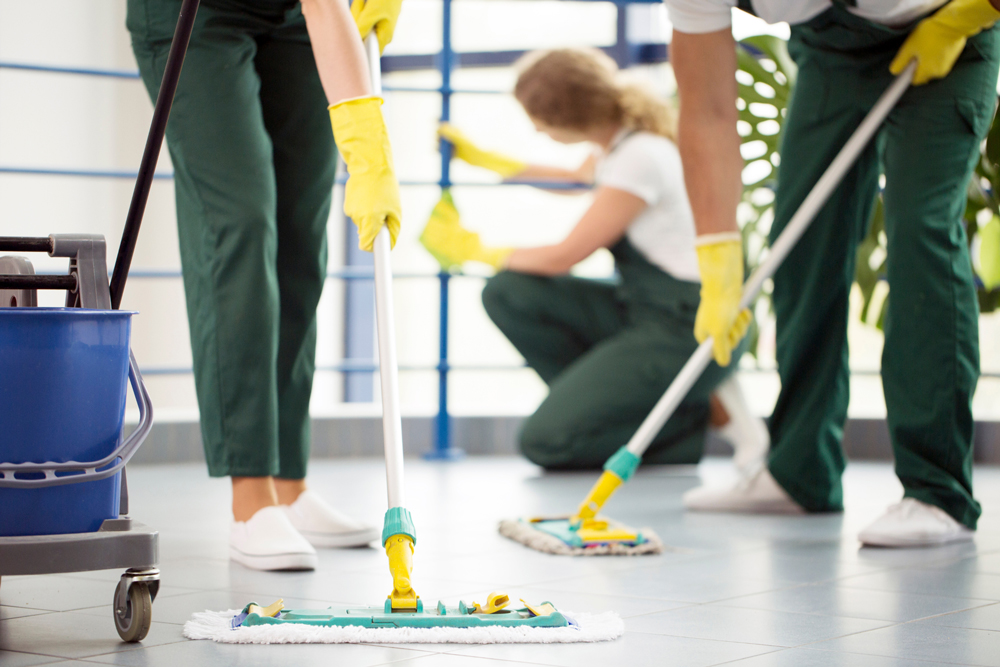By Deepali Ghadge (Standards & Technical Officer) and Kendall Benton-Collins (Strategic Communications Manager) at GECA
COVID-19 has further highlighted how proper cleaning and disinfecting makes a difference in stopping the spread of infection. Along with an increased desire for transparency and accountability in service offerings, more and more organisations will be looking to procure independently assessed cleaning services to ensure their staff and customers’ wellbeing.
The World Health Organisation (WHO), Safe Work Australia, the Australian Government Department of Health and all state governments have provided various cleaning guides relating to COVID-19. Each of these guides provides necessary instructions for the cleaning services team’s work health and safety. Wearing gloves, surgical masks, eye protection or face shields and use of sanitisers or soap wash is highly essential.
Unfortunately, even with the introduction of a vaccine, COVID-19 and other harmful pathogens will continue to impact our supply chains. Improper cleaning techniques and supplies can also bring cleaning staff into contact with harmful chemicals. Now more than ever, organisations are looking for cleaning services they can trust.
A challenge we face moving forward is the overconsumption of and the tendency to use non-eco-friendly hygiene products to prevent virus spread. Another issue is managing the increase in waste, particularly for single-use items such as masks and gloves.
Procuring sustainable cleaning products is a significant step for the health of both people and planet, but it’s not the whole story. For a truly green clean, you need to consider not only what products are being used, but also how they are being used.

“Facilities management professionals and cleaning product manufacturers are very aware of the benefits of green cleaning programs. Unfortunately, the products that they might specify aren’t being used by cleaning staff in a lot of cases,” says Paula Clasby, Head of Engagement & Marketing for GECA. “Often it’s simply a case of a cleaning staff member not understanding the importance of green cleaning products or perceiving them to perhaps be inferior to the conventional products they’ve been using for years already.”
“We’ve heard stories of staff members adding bleach to cleaning units that are designed to use only water or insisting on using bathroom cleaners with a strong fragrance because that’s perceived as an indicator of an effective clean. So, it then becomes a matter of making sure that all cleaning staff understand what they’re using and how it will benefit them.”
When using conventional cleaning products, cleaning staff can potentially be exposed to high levels of various chemicals that range from mild irritants to known carcinogens. It’s in their own best interests to switch to cleaning solutions that are free from such substances. Less exposure to harmful substances helps lower the risks for cleaning staff and building occupants. Fewer chemicals to store and dispose of safely also make regulation and compliance easier for management professionals.
The pandemic has also made it abundantly clear that your cleaning service is not somewhere you should be cutting corners. Therefore, facilities management and procurement professionals face a dual challenge: procuring genuinely sustainable cleaning products and ensuring that staff effectively uses those products.
Standards and certification provide an effective solution to both issues. Procurers can check for independent, third-party certification on products to show that they conform to high standards for environmental and health impacts. Similarly, facilities management professionals can rely on certification when choosing a cleaning services provider, knowing that their processes and products have been independently assessed. GECA provides an example of such certification, with standards available for certifying cleaning products, as well as for certifying cleaning service providers themselves.
Through the Cleaning Services standard, for example, cleaning service providers must implement guidelines on:
- Storage and use of chemicals;
- Procurement of environmentally preferable cleaning products;
- Equipment inspection and maintenance;
- Communication protocols;
- Training requirements;
- Quality assurance procedures;
- Laundering of reusable items and
Under the GECA standard, cleaning service providers must have procedures in place, and provide regular training for appropriate and effective cleaning and for dealing with hazards as they may arise on a worksite. They also should minimise the use of disposable items such as cloths used during cleaning and maximise the reuse and recycling of items during their operation. Certified providers must also adhere to guidelines for reducing the amount of waste produced and water used. When using a GECA certified cleaning service provider, you know that staff will not only be using sustainable products, but they have also been trained in the correct operation of equipment and chemical handling.
